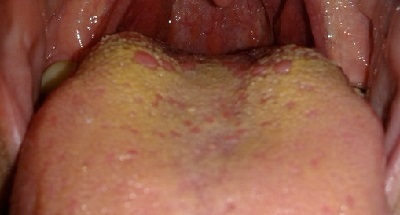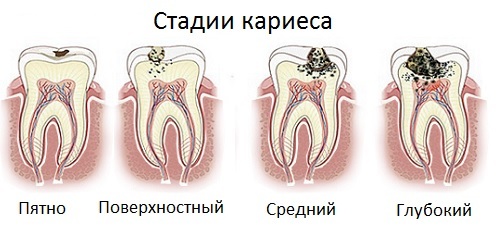 Amlotop - a medical product that is a blocker of calcium channels, also refers to derivatives of dihydropyridine.
Amlotop - a medical product that is a blocker of calcium channels, also refers to derivatives of dihydropyridine.
The drug is able to have antihypertensive and antianginal effects. By binding to the receptors, it blocks calcium channels, thereby reducing the transmembrane transfer into blood cells of calcium ions.
On this page you will find all information about Amlotop: the full instructions for use on this medication, average prices in pharmacies, complete and incomplete analogs of the drug, as well as reviews of people who have already used Amlotop. Want to leave your opinion? Please write in the comments.
Clinical and pharmacological group
The calcium channel blocker.
Conditions of leave from pharmacies
It is released on prescription.
Price list
How much does Amlotop cost? The average price in pharmacies is at the level of130 rubles.
Form of issue and composition
The medicine is produced in the form of tablets, each of which contains:
- 5 or 10 mg of amlodipine (as amlodipine besylate);
- Such auxiliary substances as lactose monohydrate, calcium stearate, microcrystalline cellulose, colloidal silicon dioxide, croscarmellose sodium.
The tablets are realized in cell contour packs of 10 and 30 pcs.
Pharmacological effect
The blocker of "slow" calcium channels of the second generation, a derivative of dihydropyridine. Has antihypertensive and antianginal action. Linking with dihydropyridine receptors, blocks calcium channels, reduces the transmembrane transition calcium ions into the cell (mostly in the smooth muscle cells of the vessels than in the cardiomyocytes).
Antianginal action is due to the expansion of coronary and peripheral arteries and arterioles: with angina decreases the severity of ischemia myocardium; expanding peripheral arterioles, reduces OPSS, reduces preload on the heart, reduces the need for myocardium in oxygen. Expanding the main coronary arteries and arterioles in unchanged and ischemic zones of the myocardium, increases the flow of oxygen into the myocardium (especially with vasospastic angina); prevents the development of constriction of the coronary arteries (including caused by smoking). In patients with angina, a single daily dose increases the time of exercise, slows the development of angina pectoris and ischemic depression of the ST segment, reduces the incidence of angina attacks and the consumption of nitroglycerin.
Has a long-term dose-dependent hypotensive effect. The hypotensive effect is due to a direct vasodilating effect on smooth muscle vessels. With arterial hypertension, a single dose provides a clinically significant decrease in blood pressure over a period of 24 hours (in the position of the patient lying down and standing). Does not cause a sharp decrease in blood pressure, a decrease in exercise tolerance, a fraction of the ejection of the left ventricle. Reduces the degree of myocardial hypertrophy of the left ventricle, has antiatherosclerotic and cardioprotective action in IHD. Does not affect the contractility and conductance of the myocardium, does not cause a reflex increase in heart rate, slows down aggregation of platelets, increases the rate of glomerular filtration, has a weak natriuretic effect.
When diabetic nephropathy does not increase the severity of microalbuminuria. Does not have adverse effects on the metabolism and lipids of blood plasma.
The time of onset of the effect is 2-4 hours, the duration of the effect is 24 hours.
Indications for use
Indications for the appointment Amlotop are the following diseases:
- Stenocardia of Prinzmetal (vasospastic angina) in combination with other antianginal drugs or as monotherapy.
- Stable exertional angina (in combination with other antianginal drugs or as a monotherapy).
- Arterial hypertension (in combination with other antihypertensive drugs or as a monotherapy).
Contraindications
According to the annotation to the drug, the use of Amlotop is contraindicated when:
- Clinically significant aortic stenosis;
- Deficiency of lactase;
- The collapse;
- Severe arterial hypotension, if systolic blood pressure does not reach 90 mmHg;
- Cardiogenic shock;
- Lactose intolerance;
- The presence of hypersensitivity to the amlotype, to any auxiliary component of the drug or to other dihydropyridine derivatives;
- Glucose-galactose malabsorption.
Do not use the drug during lactation, pregnancy, children and adolescents under 18 years.
Assign Amlotop, but strictly according to the indications and under constant medical supervision, people of advanced age, as well as patients with:
- Arterial hypotension, if the systolic pressure is greater than 90, but less than 100 mm Hg;
- Aortic stenosis;
- Acute myocardial infarction (within one month after the attack);
- Violations of the function of the liver;
- Chronic heart failure of non-ischemic etiology;
- Syndrome of weakness of the sinus node (with tachycardia, pronounced bradycardia);
- Hypertrophic obstructive cardiomyopathy;
- Mitral stenosis.
Application in pregnancy and lactation
The drug is contraindicated in pregnancy and lactation (breastfeeding).
Women of childbearing age during the treatment with amlodipine should use reliable methods of contraception.
Instructions for use Amlotop
The instructions for use indicate that with hypertension and angina, the initial dose of Amlotop is 5 mg per day once, Occasionally, a maintenance dose of 2.5-5 mg may be given, but not more than 10 mg per day.
To treat angina pectoris and its vasospastic forms, 10 mg of Amlotop is used once a day.
As a preventive therapy for anginal attacks, 10 mg of funds per day are prescribed.
Patients with a small body weight having functional disorders of the liver, to create an antihypertensive effect, appoint 2.5 mg, to eliminate anginal pain - 5 mg Amlotopa.
Side effects
According to the instruction, Amlotop causes side effects from some systems of the body, namely:
- Drowsiness, headache and cramps, dizziness, mood changes and fatigue, loss of consciousness, tremor and hypesthesia, insomnia, Vertigo and unusual dreams, nervousness, malaise and paresthesia, asthenia, ataxia and depression, apathy, agitation and amnesia (CNS);
- Fainting, shortness of breath and vasculitis, pain in the chest, palpitation, swelling of the ankles and feet, ventricular tachycardia, marked decrease in blood pressure and bradycardia, "hot flashes" of blood to the face, atrial flutter and orthostatic hypotension, extrasystole, migraine, development or aggravation of heart failure (cardiovascular system);
- Pain in epigastrium, dry mouth and jaundice, increased levels of "liver" transaminases, nausea and vomiting, pancreatitis, increased appetite and gingival hyperplasia, flatulence, constipation, gastritis and diarrhea (digestive system).
Also, Amlotop can cause:
- Myalgia, arthralgia, myasthenia gravis and arthrosis (musculoskeletal system);
- Painful urge to urinate, polyuria, pollakiuria, violation of sexual function, nocturia and dysuria (genitourinary system);
- Alopecia, xeroderma, purpura, dermatitis and skin discoloration (skin);
- Urticaria, rash, skin itch and angioedema (allergic reactions);
- Thrombocytopenia, decrease or increase in body weight, gynecomastia, visual impairment and polyuricemia, diplopia, eye pain and leukopenia, dyspnoea, hyperglycemia and thirst, conjunctivitis, nosebleeds and ringing in the ears, cold sticky sweat, back pain and cough, increased sweating, a taste disorder and rhinitis, a violation of accommodation, xerophthalmia and parosmia (other reactions).
In cases of overdose, Amlotop causes tachycardia, marked decrease in blood pressure and excessive peripheral vasodilation.
Overdose
Symptoms:
- tachycardia,
- a sharp drop in blood pressure,
- peripheral vasodilation.
Treatment:
- reception of activated carbon,
- gastric lavage,
- maintenance of the functions of the heart and blood vessels,
- elevated position of limbs,
- control indicators of lung function and heart,
- control of diuresis and the volume of circulating blood.
In order to restore the vascular tone to action, it is necessary to use vasoconstrictive drugs (if there are no contraindications to application); in order to eliminate the effects of calcium channel blockade, calcium gluconate must be injected intravenously. Hemodialysis is not used here.
special instructions
- During the period of treatment, it is required to control sodium intake and body weight of the patient. It is necessary to maintain oral hygiene and regular visits to the dentist (to prevent hyperplasia, tenderness and bleeding gums).
- In the treatment of hypertension, the drug can be used in combination with thiazide diuretics, ACE inhibitors, NSAIDs, alpha- and beta-adrenoblockers, prolonged and short-acting nitrates, oral hypoglycemic agents and antibiotics.
- In the treatment of angina, Amlotop can be taken in combination with other antianginal agents or in the form of monotherapy, including in patients refractory to treatment with beta-blockers and / or nitrates, in adequate doses.
- Amlotop does not affect the plasma concentrations of triglycerides, potassium, glucose, total cholesterol, nitrogen and creatinine urinary acid, LDL and can be used in patients suffering from bronchial asthma, gout and diabetes.
- The drug is allowed to be used in patients who are predisposed to vasoconstriction / vasospasm.
- Amlodipine tablets are not recommended for use in hypertensive crisis.
- Despite the fact that the drugs do not have this type of withdrawal syndrome, a gradual lowering of doses is recommended before discontinuation of therapy.
- Low-growth or low-body patients, patients with severe hepatic insufficiency, as well as elderly patients, may require smaller doses. During the dose increase, careful medical supervision of elderly patients is necessary.
In some patients, mainly with a change in the dosing regimen or at the beginning of therapy, as a result of a possible a marked decrease in blood pressure may occur dizziness, drowsiness and other side effects. When they appear, it is not recommended to work with mechanisms and drive.
Drug Interactions
- When taken with neuroleptics, an increase in the hypotensive effect is possible. Calcium preparations can reduce the effect of the drug. Antiviral drugs increase its concentration in the blood.
- There is an increase in effects with simultaneous use with beta-adrenoblockers, nitrates, ACE inhibitors, diuretics.
- Cimetidine does not change the pharmacokinetics of amlodipine. The use of antacids and sildenafil also does not affect the pharmacokinetics of this drug.
- Amlodipine does not affect the pharmacokinetics of Cyclosporine and the change in prothrombin time when taking Warfarin.
- There is no significant interaction with NSAIDs. There is no negative inotropic effect when used with antiarrhythmic drugs. Do not change the concentration of Digoxin and its clearance with the simultaneous use of these drugs.
The use of amlodipine with atorvastatin does not affect the pharmacokinetics of atorvastatin. Single intake of grapefruit juice is not accompanied by a change in the pharmacokinetics of the drug.
Reviews
Usually, doctors prescribe the drug for angina and hypertension. According to the reviews, Amlotop is considered a very effective tool. Consumers note its low cost and high availability in pharmacy chains.
Many patients claim that only at a daily dose of 5 mg Amlotop stabilizes the pressure and eliminates angina attacks. There are also negative opinions associated with the side effects of the drug: drowsiness, pain when urinating, skin rashes, itching, headache, swelling. Cardiologists say that puffiness is completely acceptable for Amlotop side effect, if it is not too pronounced and accompanied by a significant deterioration in well-being.
Analogues
Structural analogues of Amlotop are the following preparations: Agen, Amlo, Amlodak, Amlodil, Amlodipine, Amlong, Cardilopin, Corvadil, Corvadin, Norvasc, Omelar, Stamlo M, Tenox and many others.
Before using analogues, consult your doctor.
Storage conditions and shelf life
List B. The drug should be stored out of reach of children, dry, protected from light, at a temperature of no higher than 25 ° C. Shelf life - 3 years.

How to choose probiotics for the intestine: a list of drugs.

Effective and inexpensive cough syrups for children and adults.

Modern non-steroidal anti-inflammatory drugs.

Review of tablets from the increased pressure of the new generation.
 Antiviral drugs are inexpensive and effective.
Antiviral drugs are inexpensive and effective.



